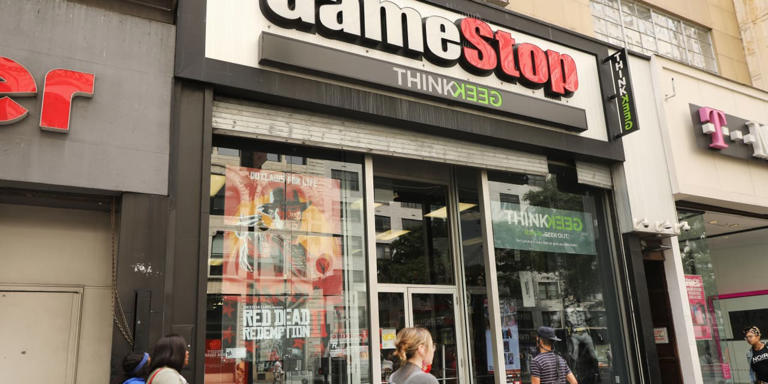In the ever-evolving landscape of the stock market, GameStop Corp. and AMC Entertainment Holdings Inc. have once again captured the spotlight, experiencing a whirlwind of activity that has left investors and analysts alike grappling with the implications of this latest surge.
The recent roller coaster ride for GameStop and AMC shares began with the return of commentator Keith Gill, famously known as Roaring Kitty, to social media platforms. Gill’s reappearance on X (formerly Twitter) after a three-year hiatus immediately reignited interest in these meme stocks, as he had been a central figure in the meme-stock frenzy of 2021. His first post on May 12 set off a chain reaction of speculation and excitement among retail investors, reminiscent of the fervor seen during the peak of the meme-stock craze.
Throughout the following week, Gill’s social media presence became the subject of intense scrutiny, with investors eagerly parsing through his cryptic messages and accompanying movie and TV clips for clues about his intentions. These enigmatic posts, often featuring iconic scenes and evocative music, created a sense of anticipation and suspense, fueling further speculation about the direction of GameStop and AMC stock prices.
Despite the excitement generated by Gill’s return, the market remained volatile, with GameStop and AMC shares experiencing dramatic fluctuations in value. On Tuesday, following a volatile trading session on Monday, GameStop shares closed down by 4.4%, reversing the gains from the previous day. Similarly, AMC shares dipped by 3.7% after a notable increase on Monday. This pattern of ups and downs underscored the inherent unpredictability of meme-stock trading and served as a reminder of the risks associated with investing in highly volatile assets.
The resurgence of meme-stock trading last week evoked memories of the frenetic activity witnessed in 2021, characterized by the gamification of trading. However, some analysts viewed this recent activity as an “outlier event,” suggesting that it deviated from the typical market behavior. Victor Ricciardi, a visiting finance professor and co-author of the book “Advanced Introduction to Behavioral Finance,” described the recent rally as an anomaly driven by unique factors rather than a reflection of broader market trends.
Despite the fluctuations, GameStop shares have seen a notable 26.2% increase in value since the beginning of 2024, while AMC shares have experienced a decline of 24%. In contrast, the S&P 500 index has posted a gain of 11.6% during the same period. This divergence in performance highlights the speculative nature of meme-stock trading and the challenges associated with predicting market movements in the face of heightened volatility.
As investors continue to grapple with the implications of the recent surge in GameStop and AMC shares, one thing remains clear: the meme-stock phenomenon is far from over. Whether fueled by social media influencers, retail investor enthusiasm, or broader market dynamics, the allure of meme stocks continues to captivate the attention of market participants and defy conventional wisdom. In this unpredictable environment, investors must exercise caution and diligence, recognizing the inherent risks associated with meme-stock investing while remaining vigilant for potential opportunities amidst the volatility.
